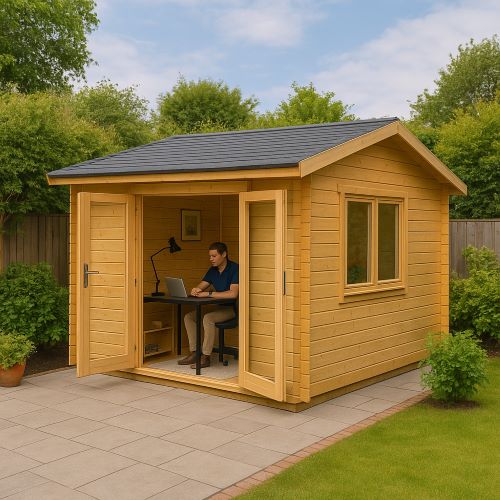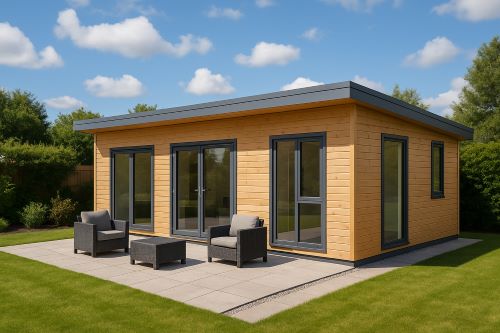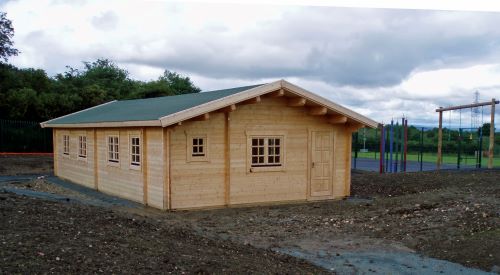Are you tired of feeling exhausted and stressed out all the time? Do you want to improve your physical and mental health? If yes, then consider trying saunas. However, there are two main types of saunas: wood-fired and electric. Each has unique features, benefits, and drawbacks; choosing the right one could save your experience. Therefore, before purchasing, you must decide which type of sauna you want, “wood fired vs electric sauna.”

Wood fired saunas are traditional and offer a more authentic and rustic experience. It uses wood to heat the sauna, which is often more intense and long-lasting than electric saunas. But, they require more maintenance and are harder to control the temperature. In contrast, electric saunas are more modern and convenient.
Now that you know the basic differences between wood fired and electric saunas, which should you choose? But before you decide, there are a few more factors to consider. For example, did you know that each type of sauna has unique health benefits? Also, there are different wood fired and electric saunas, each with features and options. To learn more, keep reading!
Which One Is Better – Wood fired Sauna Vs Electric Sauna?
Wood fired or electric, which is the better way to enjoy a sauna? It is a question that often divides sauna enthusiasts. In this comparison, we’ll explore each method’s pros and cons based on the points defending electrically heated and wood heated sauna stoves.
Ease Of Use And Installation:
Electrical sauna stoves are undeniably easier to use and install. With a simple programming device or switch, your sauna can run instantly. Besides, installation is a breeze without the need for a chimney stack. On the other hand, wood-fired sauna stoves require more effort to set up and maintain. You need to collect the wood, light the fire, and ensure that it stays burning throughout your sauna session. Hence, heating the sauna with wood can be more tiresome part of the experience. So, if you purchase a sauna for commercial purposes, the electric sauna is better.
Natural And Authentic Heating:
The natural and authentic feel of a wood fired sauna is undeniable. The crackle of the fire, the smell of burning wood, and the heat emanating from the rocks add to the ambiance of the sauna. It’s the quintessential Scandinavian cabin vibe that many people crave.
Electric saunas lack this natural feel. Still, it provides consistent heat that is easily controllable. For some, the convenience and predictability of electric heat outweigh the appeal of natural heating methods.
Encouraging Outdoor Activities And Escape:
For those who enjoy the outdoors, a wood fired sauna can be an essential part of their escape. Gathering firewood, starting the fire, and waiting for the sauna to heat up can all be part of the experience. It’s an opportunity to disconnect from technology and reconnect with nature.
Venting and air quality
Wood fired saunas have better natural ventilation and can create negative ions, which can help improve air quality. The wood burning process generates negative ions, positively affecting respiratory health and overall well-being. Electrically heated saunas don’t produce negative ions, but they also don’t produce smoke or fumes that can harm air quality.
Comfort And Relaxation
Both wood fired and electric saunas can provide a relaxing and comfortable experience. However, wood fired saunas produce more radiant heat. Thus, it can lead to a deeper sense of relaxation. At the same time, modern saunas provide consistent and controlled heat, which can be comfortable for some. Therefore, some people may find an electrically heated sauna lacking the unique sensations that wood-fired saunas offer.
Cost:
Electric saunas tend to be more expensive up front, with the cost of the sauna stove and installation. Though they use electricity, there are more energy-efficient variants, which can save money on operating costs over time. In addition, electric saunas don’t require the ongoing cost of purchasing firewood.
Comparatively, wood-fired saunas are less expensive upfront than electric saunas, as the stove cost is generally lower. However, the ongoing cost of purchasing firewood can add up, especially if you live in an area where firewood is expensive or difficult to find. Besides, wood-fired saunas require more maintenance, which can also add to the overall cost over time.
Health Benefits Of Wood-Fired Sauna Vs Electric Sauna:
Both wood fired and electric saunas can provide health benefits, but some differences exist. Wood fired saunas can produce negative ions, positively affecting respiratory health and overall well-being. In addition, the natural heating method of a wood fired sauna can provide a more authentic and grounding experience.
Moreover, the smoke and fumes from burning wood can harm air quality, which may not be ideal for those with respiratory issues. On the other hand, electric saunas don’t produce negative ions but don’t produce smoke or fumes that can harm air quality. They can provide consistent and controlled heat, which can be beneficial for relaxation and stress relief.
Wood Fired vs Electric Sauna – Final Words:
In the end, the choice between a wood-fired sauna and an electric sauna is a personal one. Some may prefer the natural, authentic feel of a wood fired sauna. At the same time, others may appreciate the convenience and ease of an electric sauna. And let’s be real. Some of us just love the smell of burning wood, while others prefer the aroma of essential oils in an electric sauna. Whether you’re a rugged lumberjack type or a modern tech guru, there’s a sauna for you. So go ahead and sweat it out. Remember, it’s not about the stove. It’s about the journey to relaxation and rejuvenation.










